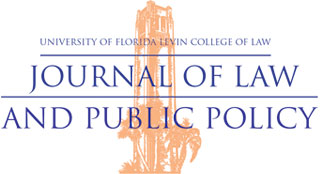
Abstract
Noncompete law stands at the intersection of competition, equality, innovation, and employment policy. While the Uniform Restrictive Employment Agreements Act (UREAA or the Act) is a positive step forward in curtailing the use of restrictive covenants, the Act is limited in its scope because it adopts a partial noncompete ban rather than a comprehensive ban. Because noncompetes harm not only workers by suppressing mobility and wages but also innovation, entrepreneurship, competition, equality, and market growth, enforcing noncompetes for higher-skilled workers can be particularly harmful from an economic policy perspective. The research on noncompetes—which has become robust in recent years—supports a national, absolute ban on all noncompetes at all employment levels. This Article, written for the University of Florida Levin College of Law’s Journal of Law & Public Policy symposium on UREAA, argues that an absolute ban on noncompetes is superior to the standard of reasonableness that the UREAA would adopt for higher-skilled employees. At the same time, it explains why the Act rightfully tackles not only noncompetes but also the family of restrictive covenants that limit workers’ ability to compete post-employment. This Article describes a growing body of academic, empirical, experimental, and theoretical research that demonstrates that the common use of boilerplate employment contracts, which bundle restrictive clauses—including noncompete, non-disclosure, non-solicit, non-poaching, non-dealing, and non-disparagement clauses, with choice-of-law, choice-of-forum, and severability clauses—have detrimental effects on mobility and innovation. This Article concludes that a national solution is superior to a uniform act adopted by states because the research shows that state variation, choice-of-law and choice-of-forum clauses, and misinformation among workers have led to noncompetes and other restrictive covenants being highly prevalent even in states that do not enforce them. Therefore, this Article commends the Federal Trade Commission’s recent action in implementing the rule to ban all noncompetes and de facto noncompetes in the United States.
Recommended Citation
Lobel, Orly
(2024)
"Why We Need a National Absolute Noncompete Ban: Restrictive Covenants from Innovation, Antidiscrimination & Competition Policy Perspectives,"
University of Florida Journal of Law & Public Policy: Vol. 34:
Iss.
2, Article 6.
Available at:
https://scholarship.law.ufl.edu/jlpp/vol34/iss2/6